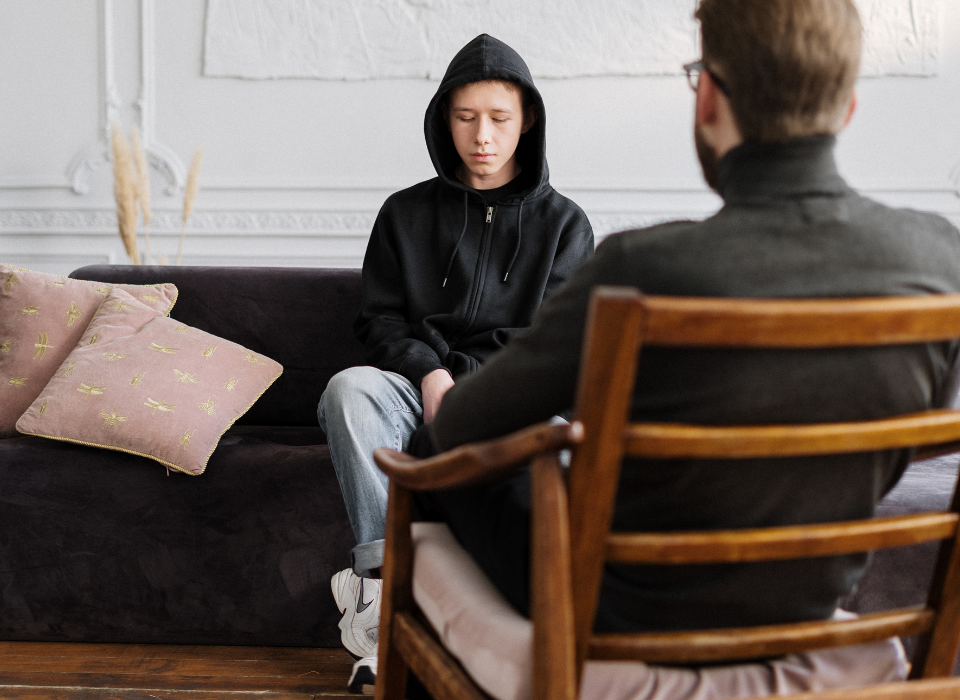
SMART Goal Setting in Recovery: A Path to Progress in the New Year
December 13, 2024
Can Depression Go Away for Good? Understanding Recovery and Treatment
December 19, 2024
When navigating the path to recovery from mental health challenges, eating disorders, trauma, or maternal mental health disorders, having the right support system can make all the difference. Among the many resources available, peer support is a powerful tool for healing and growth. This blog explores what peer support is, its importance in recovery, and its benefits during recovery.
What Is Peer Support?
Peer support is a form of help and connection provided by individuals who share experiences of similar challenges. Unlike traditional therapy or professional counseling, peer support fosters a mutual relationship between equals—both parties benefit from shared understanding, empathy, and encouragement.
In a peer support setting, the person offering assistance has typically walked a similar path, such as recovering from a mental health condition, overcoming an eating disorder, healing from trauma, or navigating the complexities of maternal mental health disorders like postpartum depression. This shared experience creates a foundation of trust and relatability, breaking down barriers that might otherwise hinder the healing process.
Peer support can take various forms, including:
- Support groups: Regular meetings where individuals share their experiences and progress.
- One-on-one mentorship: Personalized guidance from someone with lived experience.
- Online forums or communities: Digital spaces for connection and advice.
Why Is Peer Support Important During Recovery?
Recovery is often a non-linear journey that requires emotional resilience, practical strategies, and a sense of belonging. While professional treatment is essential, peer support complements it by addressing aspects that formal care may not fully provide.
- Validation and Empathy
Peer support recovery creates a space where individuals feel understood without judgment. Hearing someone who genuinely understands say, “I’ve been there too,” can provide immense comfort and motivation. - Practical Advice and Shared Wisdom
Peers offer real-world advice grounded in experience. Whether it’s tips for managing triggers, suggestions for meal planning during eating disorder recovery, or strategies for coping with postpartum anxiety, these insights often feel more relatable and actionable. - Hope and Inspiration
Seeing someone who has successfully navigated a similar journey can inspire hope and reinforce the belief that recovery is possible. This hope is a cornerstone of recovery, particularly when the road ahead feels daunting. - A Sense of Belonging
Isolation is a common challenge for individuals dealing with mental health issues, trauma, or eating disorders. Peer support groups foster community, reminding participants they are not alone in their struggles. - Reinforcing Accountability
Being part of a peer group creates accountability to others. This can motivate individuals to stay committed to their recovery goals and provide opportunities to celebrate progress collectively.
Benefits of Peer Support in Specific Recovery Contexts
1. Mental Health Disorders
Peer support has proven invaluable in managing conditions like depression, anxiety, and PTSD. Connecting with others who understand these challenges reduces stigma and fosters a more proactive approach to treatment. Participants often report feeling less alone and more empowered to prioritize their mental well-being.
2. Eating Disorders
Recovering from eating disorders like anorexia, bulimia, or binge eating disorder can feel isolating. Peer support recovery groups provide a safe environment to discuss struggles and victories around food, body image, and self-acceptance. These groups often emphasize progress over perfection, which can be a vital mindset shift.
3. Trauma
For trauma survivors, peer support can offer a unique form of solace. Sharing experiences with others who understand the lasting impacts of trauma can create a sense of safety and promote healing. Peer mentors can also help guide individuals through grounding techniques and self-care practices that work for them.
4. Maternal Mental Health
Maternal mental health challenges, such as postpartum depression and anxiety, are often accompanied by feelings of guilt and inadequacy. Peer support can normalize these experiences, reminding new mothers they are not alone. Hearing success stories from other moms who’ve sought help can encourage participants to seek care without shame.
How to Access Peer Support
If you’re considering peer support as part of your recovery, there are several ways to get started:
- Join Local Support Groups: Many organizations offer in-person or virtual groups tailored to specific recovery needs.
- Seek Peer Mentorship Programs: Look for certified peer specialists who provide one-on-one support.
- Utilize Online Communities: Websites, social media groups, and forums offer 24/7 connection with others.
- Ask Your Treatment Provider: Many therapy practices and recovery centers incorporate peer support into their programs.
Peer Support Recovery: A Complement to Professional Care
While peer support is not a replacement for therapy or medical treatment, it plays a critical role in recovery by addressing the emotional and social aspects of healing. Professional care and peer support create a holistic recovery approach that fosters resilience, growth, and lasting well-being.
Get Peer Support Today
Peer support is more than just a tool for recovery—it’s a lifeline for those facing mental health challenges, eating disorders, trauma, or maternal mental health struggles. It empowers individuals to take charge of their healing journey by fostering connection, empathy, and hope. The benefits of peer support extend far beyond the recovery process, providing participants with the skills and confidence to thrive long after their initial challenges have been addressed.
If you’re ready to embrace recovery with the support of those who genuinely understand, consider exploring peer support resources in your area or online. You don’t have to navigate this journey alone—healing is possible, and help is within reach.
_________________________________________________________________________________
Looking for treatment for an eating disorder, anxiety, depression, trauma, or postpartum mood disorder?
Evolve Counseling Services is a specialized team of Licensed Therapists providing treatment in Paoli.



